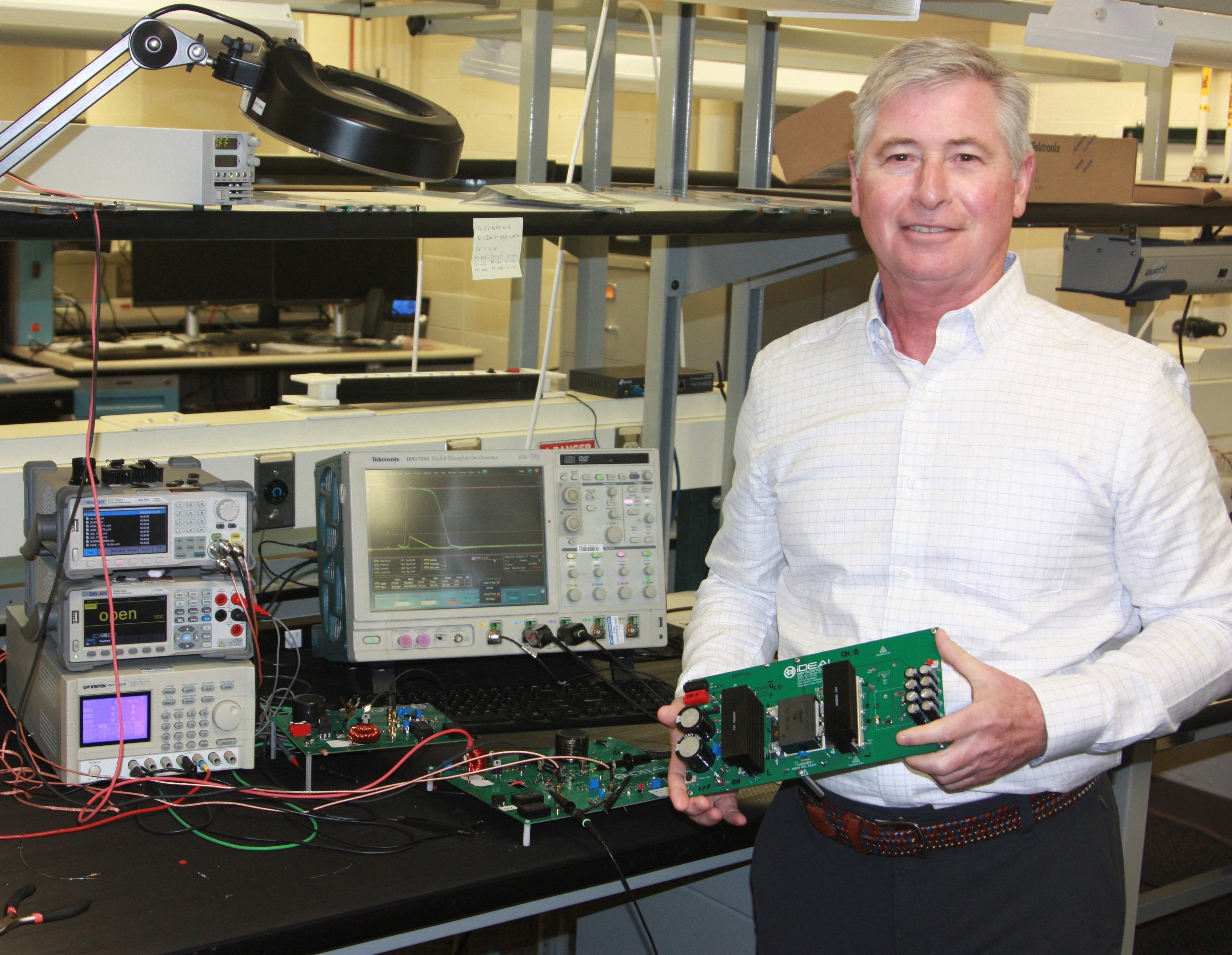iDEAL Semiconductor targets cheaper electric car chips with $40 mln funding
[1/2]Mark Granahan, Chief Executive of iDEAL Semiconductor, is pictured with the company's energy efficient power chips, in this undated handout photo received on May 15, 2023. Courtesy of iDEAL Semiconductor/Handout via REUTERS Purchase Licensing Rights
May 16 (Reuters) - iDEAL Semiconductor on Tuesday said it has raised a new round of funding and is releasing a new technology that can make chips for electric vehicles and data centers more efficient while using cheap, readily available materials.
iDEAL's technology is a new way of making what are called power chips, which go into everything from washing machines to internet servers to help with tasks such as converting alternating current from the electric grid to the direct current used by the device.
A new wave of power chips from companies including Wolfspeed Inc (WOLF.N) and On Semiconductor Corp (ON.O) made out of a material called silicon carbide can help extend the range of electric vehicles because the chips are more efficient.
But the materials are expensive and still face supply bottlenecks compared with the cheaper standard silicon used in most chips. iDEAL says it has crafted a new recipe that borrows from fields such as solar panel technology to make chips out of standard silicon that can compete with more exotic materials in energy efficiency.
"We've had this drum beat for the past 10 years that silicon is dead," said Mark Granahan, iDEAL's chief executive officer. "It's quite frankly the lack of innovation in silicon that has enabled that drum beat."
The Lehigh Valley, Pennsylvania-based firm said it has raised $40 million, bringing its total raised to date to $75 million. The company's backers include the investing arm of semiconductor manufacturing equipment maker Applied Materials (AMAT.O).
iDEAL has partnered with Bloomington, Minnesota-based chip manufacturer Polar Semiconductor to make its first chips and is planning to roll them out later this year.
Granahan said silicon carbide chips can still beat iDEAL's for certain applications including the extremely high voltage chips needed for applications such as electric semi trucks. But he said iDEAL's chips could be competitive for about 90% of the overall market for power chips.
"We're early days with the technology, and we're certainly going to push the boundaries upwards," Granahan said.
(This story has been corrected to fix the details of funding rounds in paragraph 6)
Sign up here.
Reporting by Stephen Nellis and Jane Lanhee Lee in San Francisco; Editing by Lincoln Feast
Our Standards: The Thomson Reuters Trust Principles.

